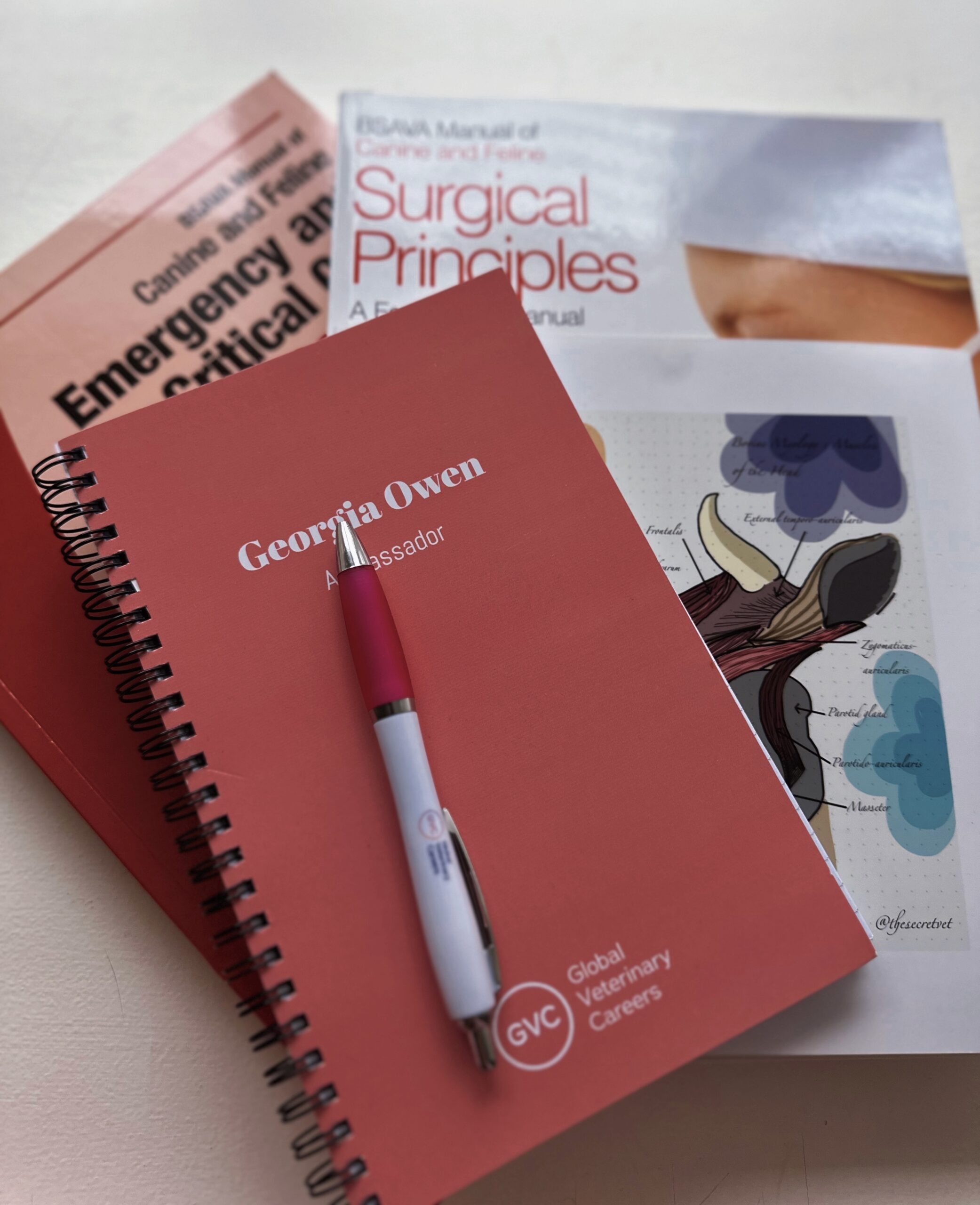Reflection is one of the most important skills that you will learn at vet school, no matter how much we all hate to do it. Being able to actively reflect on past situations and draw out both the good and the bad is essential in helping you develop as both a person and a veterinarian.
Looking back on my time at vet school whilst flicking back through social media, it’s easy to get the impression that the past four years of vet school have been nothing but a walk in the park.
Well, let me set the record straight – it’s been a rollercoaster of highs and lows
And you know what? That’s perfectly normal.
So, let’s have a look over some of the most common challenges that I, alongside other vet students, have faced whilst studying at vet school:
Academic Strain
One of the most significant challenges of vet school is the sheer intensity of the academic curriculum. From anatomy and physiology to pharmacology and pathology, the breadth of knowledge required is immense. Juggling lectures, labs, and clinical rotations is a constant balancing act, demanding not just hard work, but also effective time management skills.
Clinical Rotations
The transition from classroom learning to real-world applications during clinical rotations takes a while to get accustomed to. The pressure to apply theoretical knowledge in a fast-paced clinical setting, make critical decisions, and communicate effectively with both colleagues and clients is both exciting and nerve-wracking.
Financial Strain
The cost of pursuing a veterinary education is undeniably high, and financial strain is a common challenge for vet students. Tuition fees, textbooks, and the cost of living can add up quickly, leading to financial stress. Pair this with the fact that maintaining a part-time job during the later years of vet school becomes almost impossible, and the lack of funding for students on EMS… you can see how stressful that can become, especially for self-funded students trying to make ends meet.
Competitive Environment
Veterinary school is inherently competitive, with students wanting to excel academically and stand out in a highly skilled pool. The pressure to maintain high grades, coupled with the constant comparison to peers, can contribute to imposter syndrome and self-doubt.
Work-Life Balance
Maintaining a healthy work-life balance is a perpetual challenge for vet students. The demanding nature of the curriculum often leaves little time for personal pursuits and relaxation. Learning to prioritise self-care, set boundaries, and find moments of respite amid the academic hustle has been crucial for my overall well-being.
In a nutshell, being a vet student is no walk in the park. We face a multitude of challenges – academic, emotional, and financial. But each challenge is a chance to grow, turning us into more resilient and capable future vets.
So keep rocking those scrubs and let’s conquer these challenges together 🐾✨
Written by Georgia Owen, Fourth Year Vet Student at The Royal Veterinary College (RVC)



